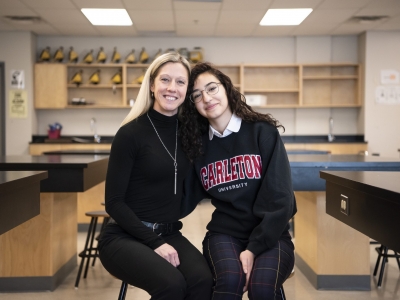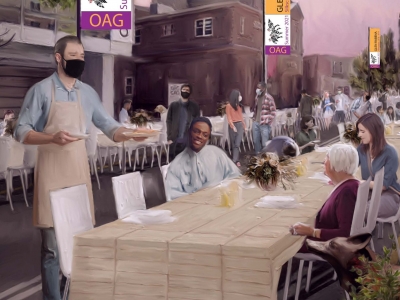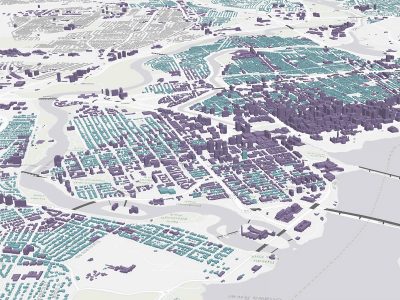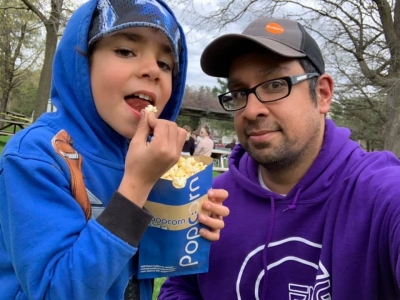It's a Tie! Two Students Win The Adrian D.C. Chan Award for Volunteer & Community Service
By Joseph Mathieu
Photos by Christmas Pranommit & Melanie Mathieu
Normally, there is a single recipient for the annual Adrian D.C. Chan Award for Volunteer and Community Service. But when two Faculty of Engineering and Design students like Nikita Yovchev and Ankita Dey applied, the award committee faced a challenge.
“Both Nikita and Ankita have a breadth and depth of contributions and their commitment to positive impact also spanned a long period of time,” says Carleton systems and computer engineering Prof. Adrian Chan. “We were impressed with the thoughtfulness and care in their actions and it ended up being impossible to decide.”
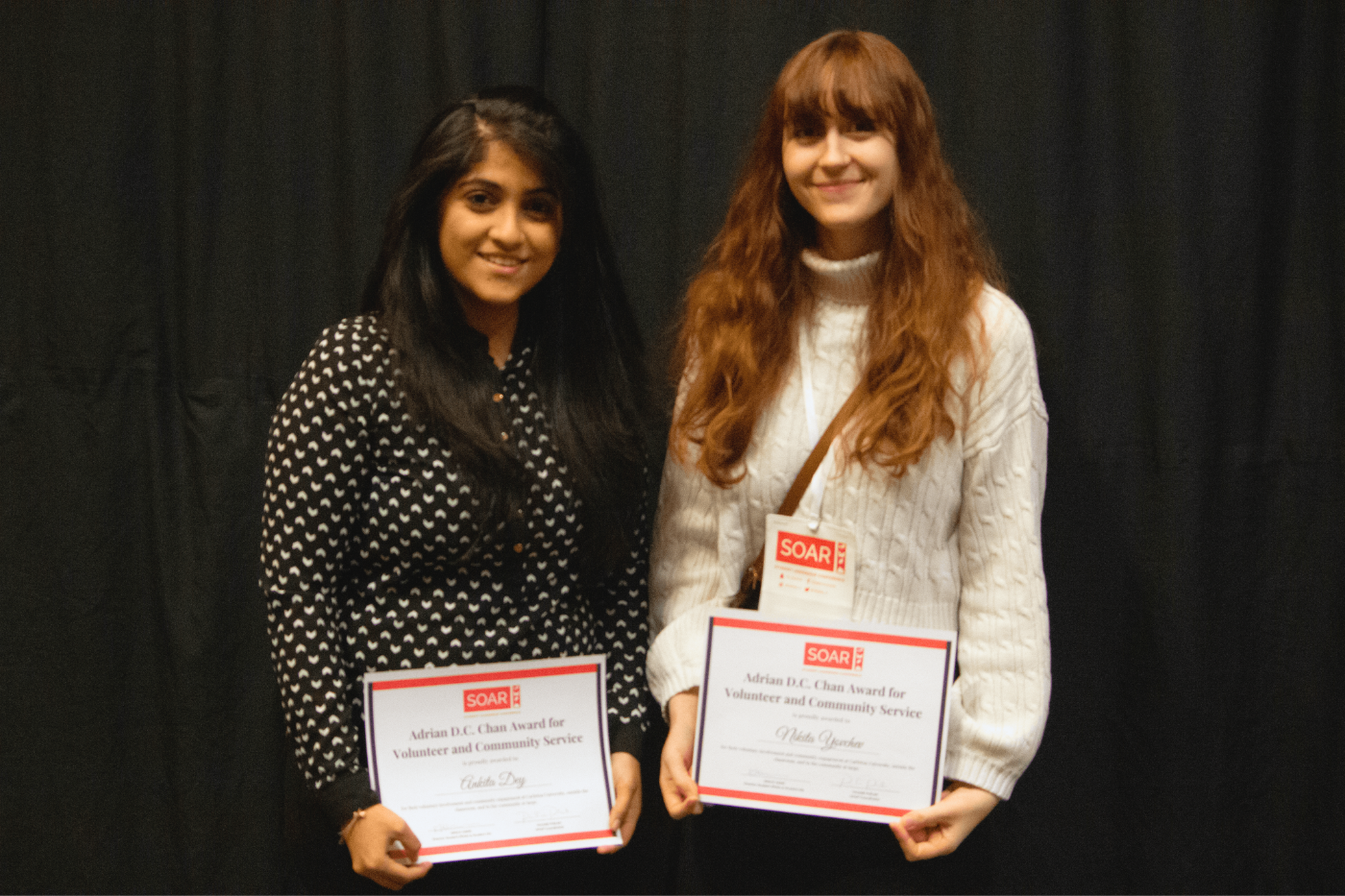
The 2024 winners of the Adrian D.C. Chan Award for Volunteer and Community Service: fourth-year PhD student in Electrical and Computer Engineering student Ankita Dey (left) and fourth-year Biomedical and Electrical Engineering student Nikita Yovchev (right).
Chan established his eponymous award to recognize engineering as a profession aiming for the betterment of society. He was inspired early in his teaching career by a number of exceptional students he met through the Carleton University Engineers Without Borders and SHAD. He wished to create an award to recognize their commitments to their engineering program but also to their communities.
Nikita Yovchev: Driven By Community, Collaboration And Social Good
One of 2024’s winners is Nikita Yovchev, a fourth-year Biomedical and Electrical Engineering student deeply involved with student organizations. Yovchev wants to apply her degree to do something that will help people and she believes volunteering should be about making everybody feel welcome.
“The sense of community that came from Carleton’s engineering community allowed me to see myself as part of a group,” she says. “It helped me realize that in any career there’s always a social aspect to embrace, which ultimately motivates people to do good work.”
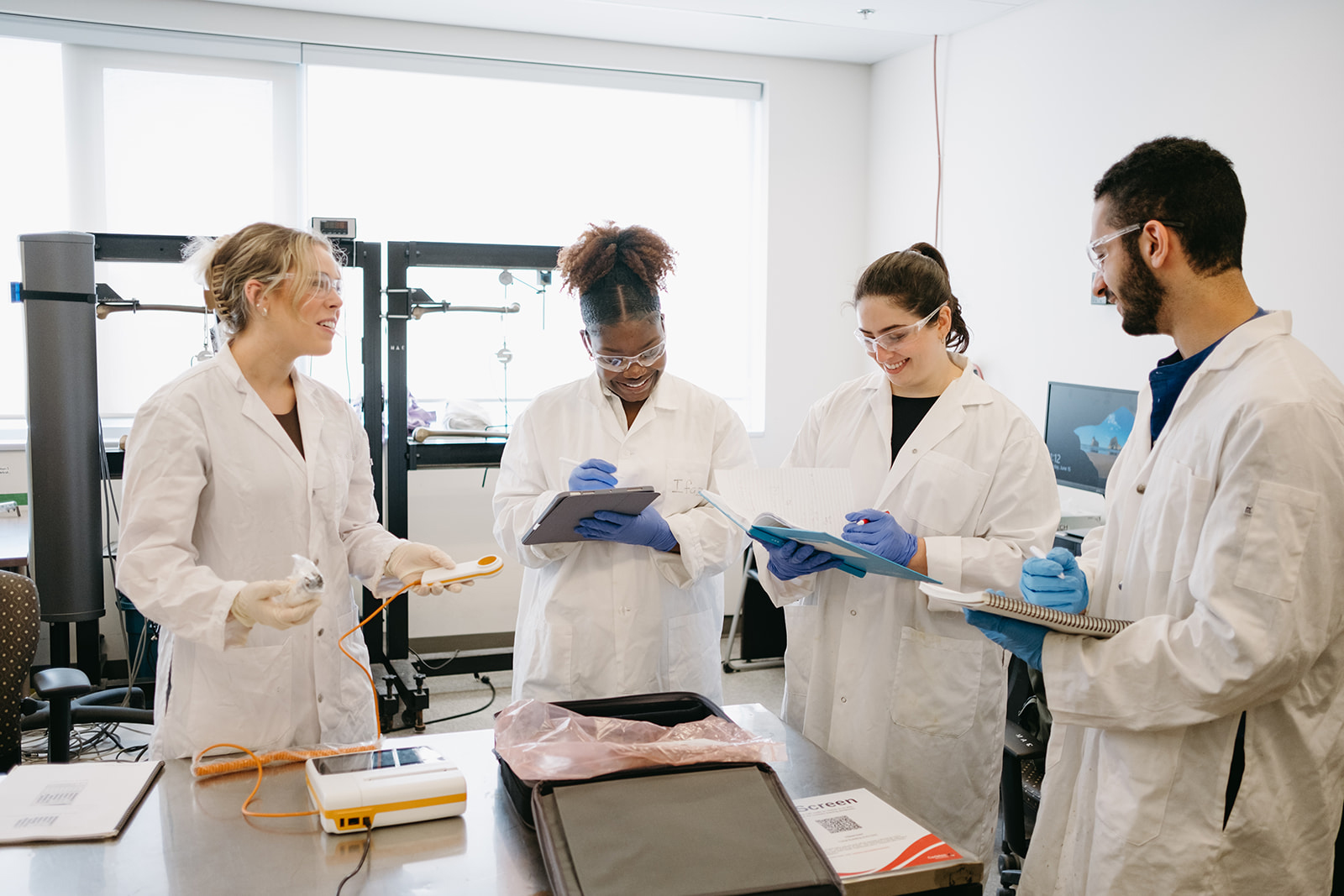
Excellence and collaboration starts in the classroom. A degree in Biomedical and Electrical Engineering offers endless possibilities in a much-needed and fast-growing field. With modern laboratory and research facilities, CO-OP options and local hospital partnerships, students work together to design and build new components and systems for real-world biomedical applications.
Chan agrees, because he believes in the power of recognition.
“When people take the time to say, ‘thank you’ or ‘good job’ in a sincere, thoughtful manner, I think it can be quite impactful,” says Chan. “It can help sustain someone to continue their efforts in contributing positively to their communities.”
Yovchev joined the Carleton Systems and Computer Engineering Society as secretary, and went on to become a Vice-President and then President. Other doors opened through the people she met there, like Teodora Blidaru, another biomedical engineer and previous winner of the Adrian D.C. Chan Award, who inspired her to give back to her community.
Today, she is the general manager of the student café Leonardo’s Lounge and the VP Internal of the Carleton Student Engineering Society, which supports Carleton’s engineering undergraduate students.
“I’ve always loved student government and clubs in general,” says Yovchev. “It’s where you can embrace what you like to do, and you can apply it to the community that you helped to create. That’s where you will end up excelling in your degree and that’s ultimately the best kinds of communities we can foster.”
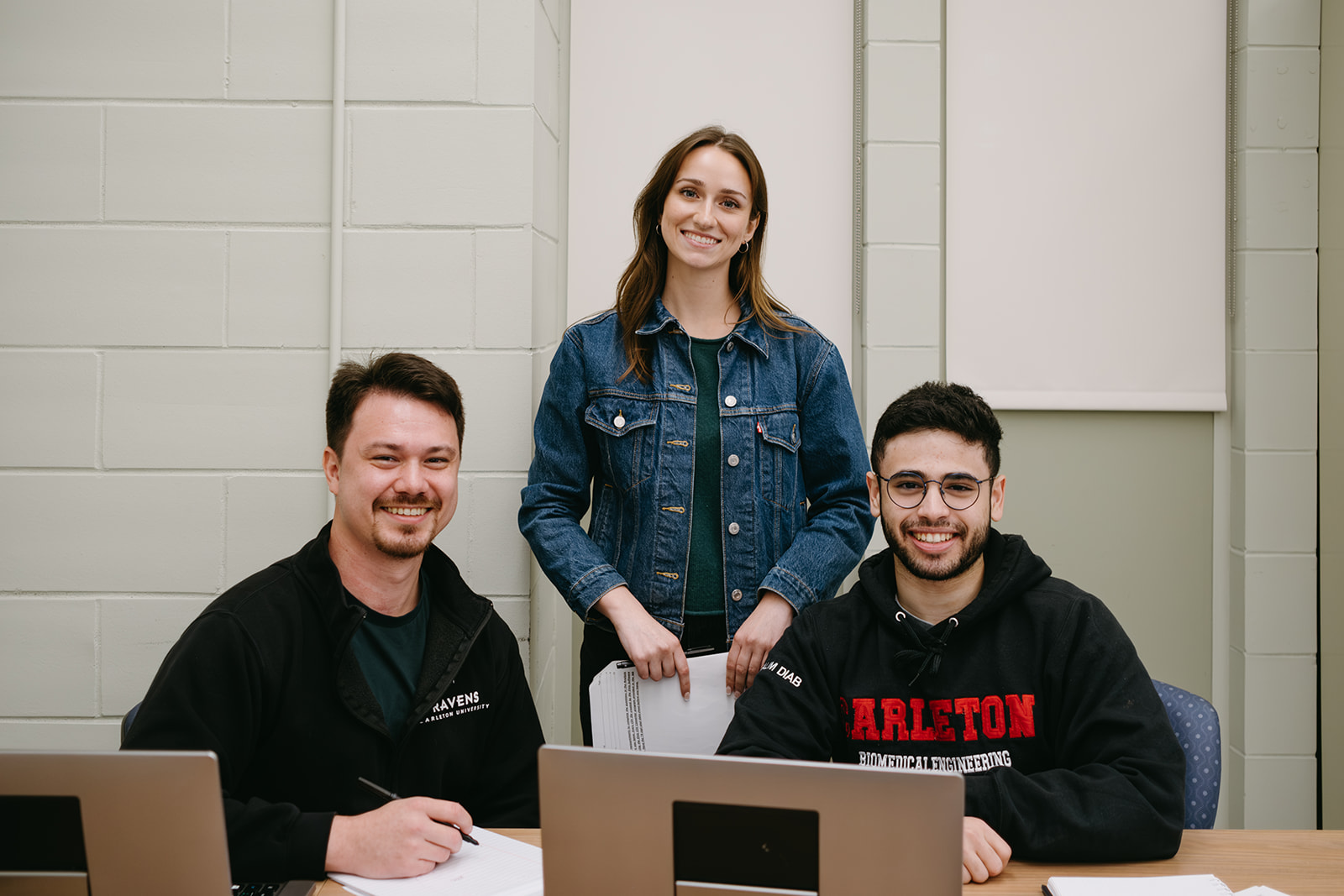
Carleton’s engineering community is proud to be close knit and collaborative, even across the many degrees, disciplines and departments offered. Students can get involved in a variety of clubs, societies and networking events to enrich their studies and future career based on their area of interests.
She is still determining what’s next after graduation but she definitely wants to be involved with the alumni association. She will continue to encourage other young engineering students to care about community and to make the most of their degree.
“Nikita and Ankita are wonderful exemplars of such students who are well deserving of the recognition,” says Chan. “I have no doubts they will both continue to have an increasingly positive impact on their communities.”
Ankita Dey: Inspired By Science, Innovation & Her Grandmother’s Story
Ankita Dey is a fourth-year PhD student in Electrical and Computer Engineering. She completed her masters at the Indian Institute of Technology Ropar in India and came to Carleton with a scholarship.
She was interested in biomedical signal processing and image processing as well as machine learning and systems engineering and she wanted to work with Prof. Sreeraman Rajan as her supervisor. She currently works at NRC Canada on a project led by Rajan.
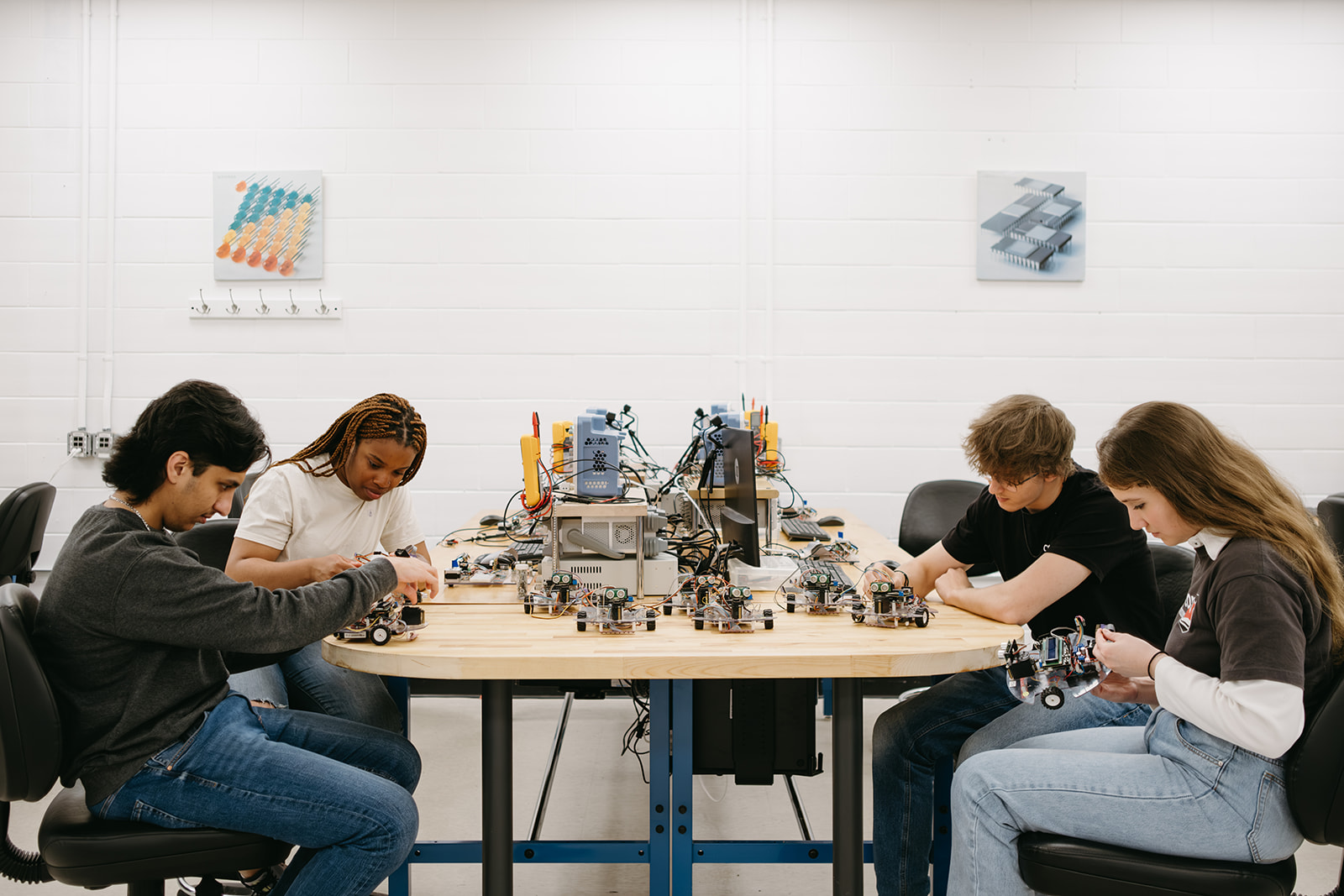
Carleton University’s Department of Electronics offers numerous undergraduate, graduate and doctorate level programs. It is one of the largest and most research intensive departments in Canada for electronic circuit design, RF and microwave circuits, photonics and integrated circuit technology.
“Engineering is amazing and I really enjoy science and its application,” says Dey. “I’m grateful to Prof. Rajan who taught me that for society to grow we need to do research properly and also show it being done properly.”
Dey is involved heavily with the IEEE Ottawa section, where she is the secretary of the section. She is also currently the co-chair of the Carleton graduate student chapter of EMBS (CU@EMBS), where she has helped organize many events, including the IEEE CU@EMBS annual graduate student colloquium last September. She served as secretary at the 2023 IEEE International Conference on Consumer Electronics in Las Vegas last January.
Previously, she has mentored a local team participating in Canada’s biggest hackathon Hack the North and she co-organized the Canadian Tracking and Fusion Group Workshop in 2021, among many other projects.
“I feel like giving back is important to society but also to your self-development,” says Dey. “You need so many people to learn and gain new knowledge every day. That’s how you give back to society: by contributing significantly toward science through research and volunteering services.”
Dey was also inspired by her grandmother. After retiring as a linguistics professor from Calcutta University, Dey’s grandmother spent much of her time teaching underprivileged children how to knit.
“She continued into her 80s, and some of those children grew up to make a living out of knitting.”
Dey hopes to continue to give back by becoming a faculty member, as she was inspired by her professors, especially her supervisor, to become a prof herself.
Thursday, February 22, 2024 in Biomedical and Electrical, Competitions and Awards (External), Electrical, Feature Stories, Interdisciplinary, Systems and Computer
Share: Twitter, Facebook
